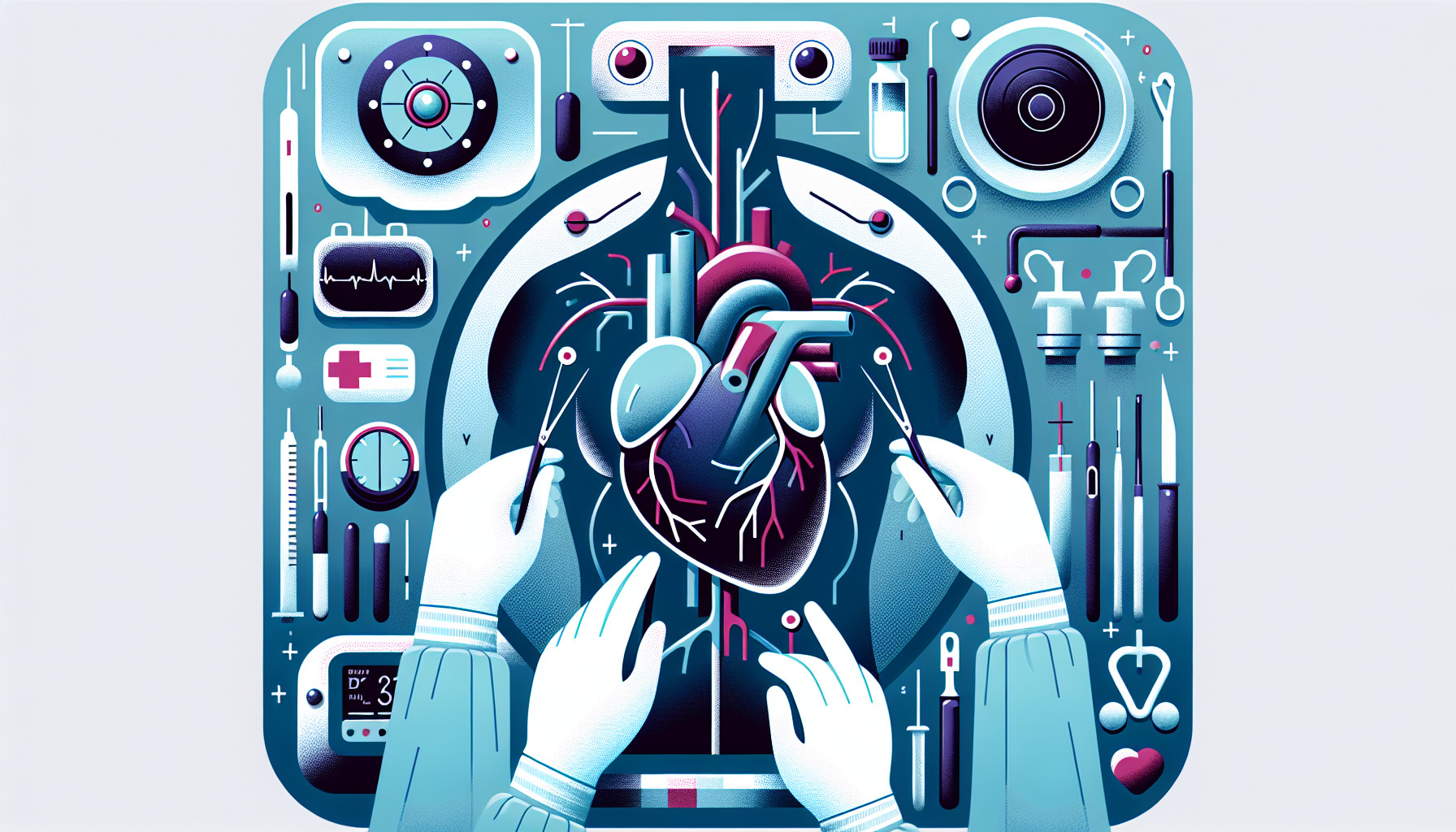Our Summary
This research paper appears to discuss a study related to Coronary Artery Bypass Grafting (CABG), a type of heart surgery. The researchers are assessing the effectiveness of the bypass using flow measurement techniques, intraoperative imaging (images taken during the operation), and high-frequency ultrasound. These methods help visualize the surgery and measure how well the blood is flowing through the bypass graft, ensuring that the surgery was successful.
FAQs
- What is coronary artery bypass grafting?
- How is high-frequency ultrasound used in bypass assessment?
- What is the role of intraoperative imaging in coronary artery bypass procedures?
Doctor’s Tip
One helpful tip a doctor might tell a patient about coronary artery bypass is to follow a healthy lifestyle after the surgery, including maintaining a balanced diet, regular exercise, and avoiding smoking. These lifestyle changes can help improve the long-term success of the bypass surgery and reduce the risk of future heart complications. Additionally, it is important for patients to continue taking any prescribed medications and attend follow-up appointments with their healthcare provider to monitor their progress and make any necessary adjustments to their treatment plan.
Suitable For
Patients who are typically recommended for coronary artery bypass surgery are those who have severe blockages in their coronary arteries that cannot be effectively treated with medications or less invasive procedures such as angioplasty. These patients often have significant symptoms of coronary artery disease, such as chest pain (angina) or shortness of breath, and are at high risk for a heart attack or other serious cardiac events.
Other factors that may make a patient a candidate for coronary artery bypass surgery include:
- Multiple blockages in the coronary arteries
- Left main coronary artery disease
- Diabetes
- Reduced heart function (low ejection fraction)
- Previous unsuccessful attempts at angioplasty or other interventions
- Presence of other medical conditions that increase the risk of complications during surgery
Ultimately, the decision to recommend coronary artery bypass surgery is based on a thorough evaluation of the patient’s medical history, symptoms, risk factors, and the severity and location of the blockages in the coronary arteries. This decision is typically made by a multidisciplinary team of cardiologists, cardiac surgeons, and other healthcare professionals.
Timeline
Before coronary artery bypass surgery:
- Patient undergoes a thorough evaluation by their healthcare provider, including a physical exam, medical history review, and diagnostic tests such as electrocardiogram (ECG), echocardiogram, and coronary angiography.
- Based on the results of these tests, the decision is made to proceed with coronary artery bypass surgery as a treatment for severe coronary artery disease.
- The patient is informed about the procedure, its risks and benefits, and what to expect before, during, and after surgery.
- Preoperative preparations may include blood tests, imaging studies, medication adjustments, and lifestyle modifications such as smoking cessation and diet changes.
After coronary artery bypass surgery:
- The patient is admitted to the hospital and undergoes the surgery under general anesthesia. The surgeon makes an incision in the chest, harvests a healthy blood vessel from another part of the body (such as the leg or arm), and uses it to create a detour around the blocked or narrowed coronary artery.
- After the surgery, the patient is closely monitored in the intensive care unit (ICU) for a period of time to ensure proper recovery and stability.
- Pain management, medication administration, and physical therapy are provided to aid in the patient’s recovery and rehabilitation.
- The patient may be discharged from the hospital within a week or so, depending on their progress and overall health status.
- Follow-up appointments with the healthcare provider are scheduled to monitor the patient’s recovery, manage any complications or side effects, and provide ongoing care and support.
What to Ask Your Doctor
- What is the reason for recommending coronary artery bypass surgery?
- What are the potential risks and complications associated with the procedure?
- How long will the recovery process take, and what can I expect during this time?
- Will I need to make any lifestyle changes or take medications after the surgery?
- How long will the results of the surgery last, and will I need any follow-up procedures in the future?
- Are there any alternative treatment options to consider before proceeding with coronary artery bypass surgery?
- How experienced is the surgical team in performing this procedure?
- What can I do to prepare for the surgery and optimize my outcome?
- How will the success of the surgery be monitored and evaluated?
- Are there any specific questions or concerns I should discuss with a cardiologist or other specialists before moving forward with the surgery?
Reference
Authors: Vondran M, Rastan AJ. Journal: Eur J Cardiothorac Surg. 2021 Dec 27;61(1):214-215. doi: 10.1093/ejcts/ezab325. PMID: 34458897
